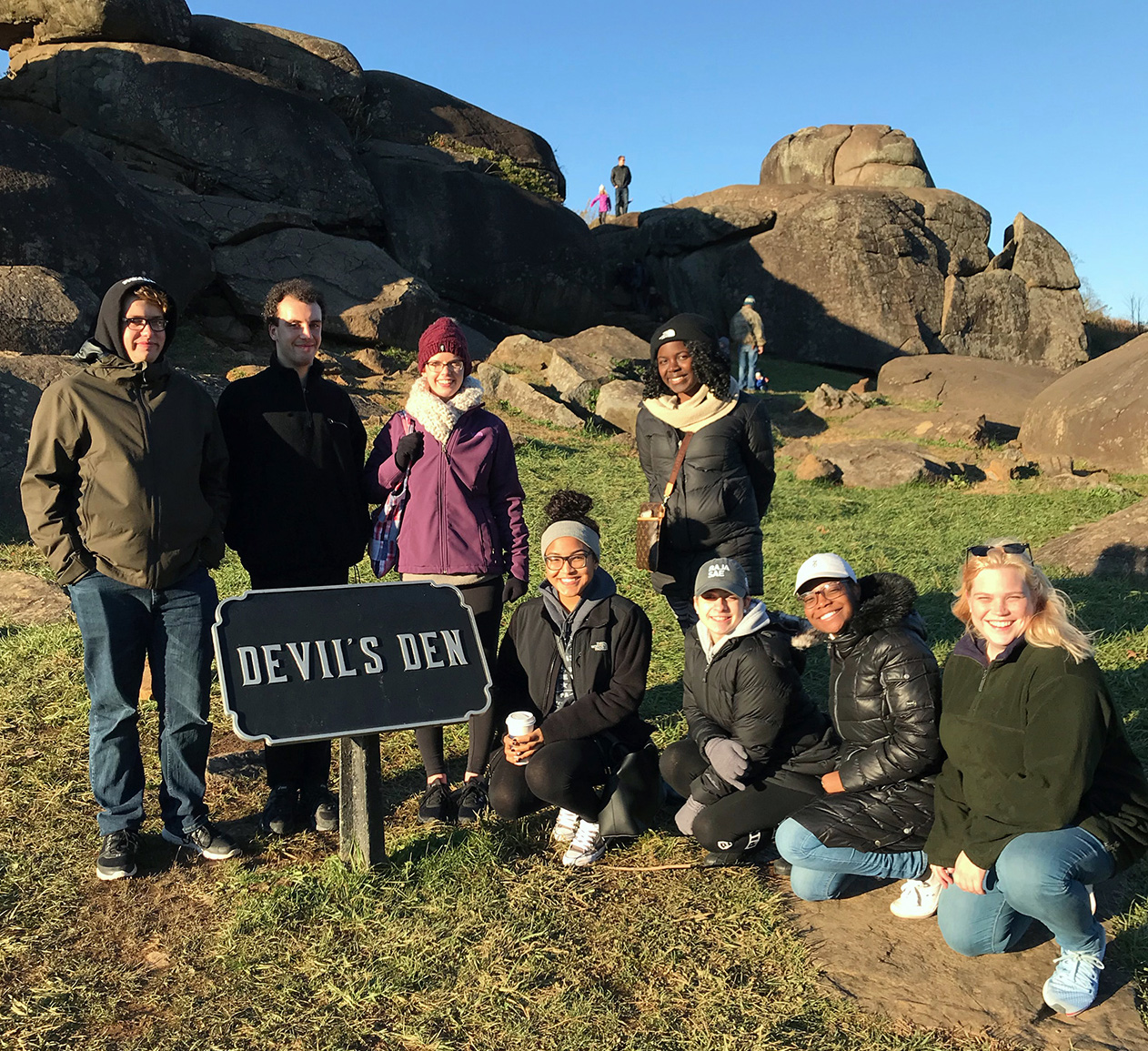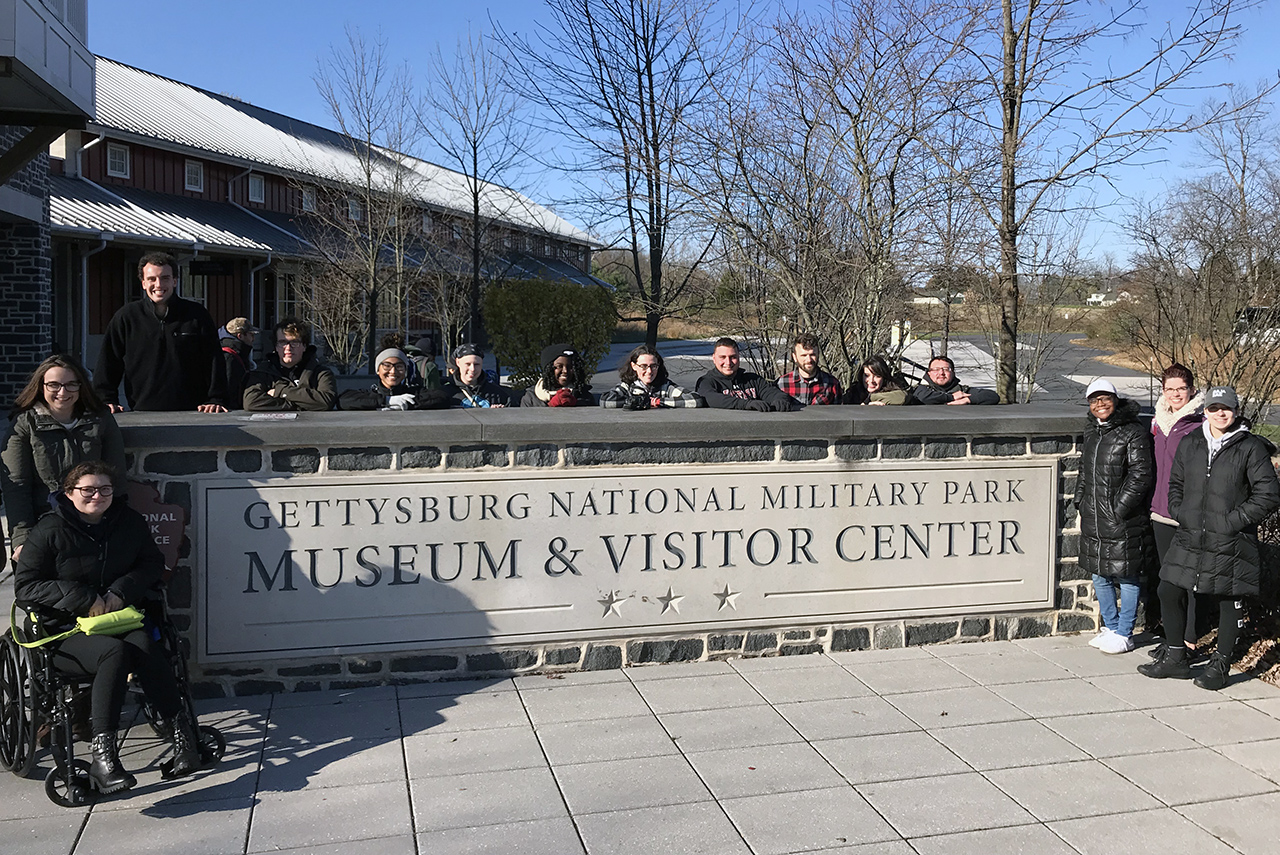


Published on November 21, 2018
 A group of history students from Eastern visited Gettysburg National Military Park on Veterans Day weekend, Nov. 10-11. Students enrolled in Professor Barbara Tucker’s “Civil War and Reconstruction” course and Professor Thomas Balcerski’s “Antebellum America” course went on the trip. The park is the site of the Civil War’s Battle of Gettysburg, the event that inspired President Abraham Lincoln’s “Gettysburg Address.”
A group of history students from Eastern visited Gettysburg National Military Park on Veterans Day weekend, Nov. 10-11. Students enrolled in Professor Barbara Tucker’s “Civil War and Reconstruction” course and Professor Thomas Balcerski’s “Antebellum America” course went on the trip. The park is the site of the Civil War’s Battle of Gettysburg, the event that inspired President Abraham Lincoln’s “Gettysburg Address.”
After an orientation at the museum’s visitor center, the group proceeded to Little Round Top, the site of one of the most well-known Civil War actions at Gettysburg, where Confederate troops waged an unsuccessful assault against Union forces on the second day of the Battle of Gettysburg, July 2, 1863.
They also visited Devil’s Den, a section of the Gettysburg battlefield dominated by terrain challenges and intense infantry and artillery fighting. The location is the site where many famous post-battle photographs were taken by well-known Civil War photographer Alexander Gardner. 
Wheatfield, often described as the bloodiest square mile of fighting in American history, was another stop on the group’s itinerary. More than 6,000 of 20,000 Confederate and Union soldiers were killed, wounded or captured at the location.
Culp’s Hill, another location the group visited, was a critical part of the Union Army’s defensive line and the scene of fierce fighting. Over 22,000 Americans fought for seven hours under sustained close combat conditions that concluded with Confederate surrender.
“The students and faculty that attended the trip were able to experience one of the most famous theaters of war in United States history, while paying tribute to Connecticut soldiers who died in the Civil War,” said History Department Chair and Professor Joan Meznar. “As they recalled President Abraham Lincoln’s eloquent eulogy to those whose blood had consecrated the battlefield, and whose sacrifice ensured that the states would remain united, they also honored the countless men and women who have offered their all for the cause of freedom in battlefields all over the world.”
The group also paid tribute to various Connecticut regiments that fought in the battle by laying flowers at their respective monuments. They visited the Soldier’s National Cemetery, the site of Lincoln’s “Gettysburg Address,” before returning to Eastern.
Written by Anne Pappalardo